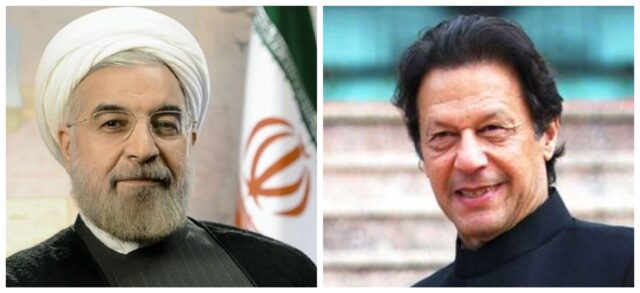NEW DELHI: Two countries with similar records when it comes to terror financing but on Friday the FATF (Financial Action Task Force) rendered two different rulings. Pakistan on the FATF grey list has been warned to fulfil its commitments by June on the FATF-mandated Action Plan or face the music in terms of financial sanctions. Iran, its neighbour, continues to remain on the FATF blacklist after reportedly failing to heed warnings regarding its conduct.
On Iran, FATF said “it will remain concerned with the terrorist financing risk emanating from Iran and the threat this poses to the international financial system.” The FATF decision will be a setback for Iran which needs to get off the blacklist to be able to do business with European countries as they had been asking that Iran comply with the terror watchdog’s Action Plan.
As for Pakistan, the FATF warned that if Pakistan is unable to show further progress on its Action Plan, there would be consequences. It also called upon Pakistan to “address the strategic deficiencies” as enunciated in the Action Plan even as it decided that it would remain on the grey list.
“The FATF strongly urges Pakistan to swiftly complete its full action plan by June 2020. Otherwise, should significant and sustainable progress especially in prosecuting and penalising TF (terror funding) not be made by the next plenary, the FATF will take action, which could include the FATF calling on its members and urging all jurisdictions to advise their FIs (financial institutions) to give special attention to business relations and transactions with Pakistan.”
The terror watchdog noted that Pakistan has “largely addressed 14 of 27 action items, with varying levels of progress made on the rest of the action plan. It also noted that “all deadlines in the action plan have expired”. At the same time, the FATF said that “while noting recent and notable improvements”, the FATF again expresses concerns given Pakistan’s failure to complete its action plan in line with the agreed timelines and in light of the TF (terror financing) risks emanating from the jurisdiction.
Among the strategic deficiencies defined by FATF are: to
demonstrate remedial actions and sanctions applied in cases of AML/CFT (anti-money laundering/combating the financing of terrorism) violations; demonstrating that the concerned authorities are cooperating and taking action to identify and take enforcement action against illegal money; demonstrate that law enforcement agencies are identifying and investigating the widest range of terror financing activities and prosecutions target the designated persons and entities; and demonstrate that terror financing prosecutions result in effective, proportionate and dissuasive sanctions.
If the FATF were to impose financial sanctions, it would deal a body blow to a country already grappling with a struggling economy and double digit inflation. It managed to obtain a $6 billion bailout package from the International Monetary Fund (IMF) last year. This was after the IMF in a report noted that blacklisting by the FATF “could result in a freeze of capital flows and lower investment to Pakistan”.
The four months reprieve that Pakistan has obtained may disappoint New Delhi. But there’s also consolation from the fact that the pressure on Pakistan to continue to crackdown on terrorists and terror outfits will continue. The only question is whether Pakistan’s actions against terrorist outfits and their sources of funding are credible or not.
A case in point is that Masood Azhar, chief of the Jaish-e-Mohammad and mastermind of the Pulwama attack last year. Pakistan told the FATF that he and his family are missing. The ‘strategic deficiencies’ described by the FATF must include such manoeuvres by the Pakistani deep state.
















